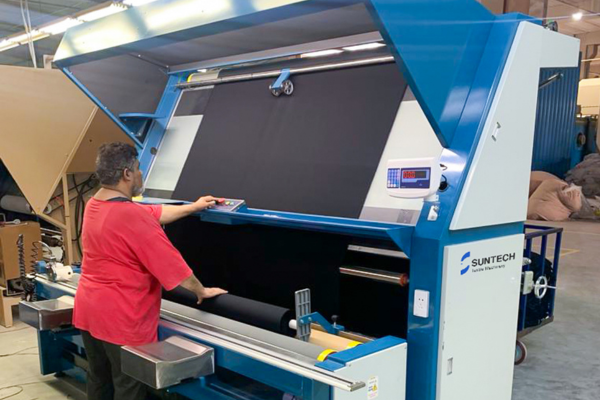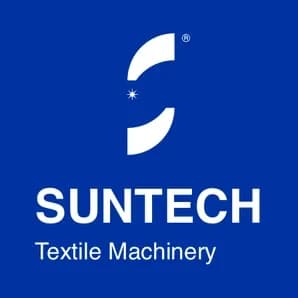
Fabric inspection machines play a critical role in the textile industry, aiding manufacturers in assessing fabric quality before processing it into finished products.
Faced with a wide range of fabric inspection machine products on the market, how can you choose the most suitable equipment with a limited budget? This article will analyze the classification of fabric inspection machines, price influencing factors, and purchase tips in detail to help you make a wise decision.
Functional Classification of Fabric Inspection Machines
Based on the inspection items, fabric inspection machines are mainly divided into the following categories:
Appearance inspection: mainly inspects fabric defects, width, color difference, etc.
Physical property inspection: mainly inspects fabric thickness, density, strength, elongation, etc.
Chemical property inspection: mainly inspects fabric color fastness, component content, etc.
Before garment production, we mainly focus on appearance inspection and physical property inspection.
Factors Affecting Fabric Inspection Machine Prices
Size and Capacity
The size and capacity of fabric inspection machines significantly impact their prices. Larger machines handling more fabric at once tend to be pricier due to increased materials and advanced features. Additionally, installation space requirements can contribute to overall costs.
Features and Technology
The incorporation of advanced features and technology, such as sensors and automated functions, affects machine prices. Models with sophisticated defect detection systems or additional functionalities like automated cutting may command higher prices. Maintenance and repair costs should also be considered for technologically advanced machines.
Brand and Reputation
The reputation of the manufacturer influences fabric inspection machine prices. Established brands known for quality and reliability may charge premiums, while newer manufacturers might offer more competitive pricing. However, factors like customer service and warranty coverage should not be overlooked when selecting a manufacturer.
Customization Options
Fabric inspection machines with customization options allow manufacturers to tailor features to their specific requirements. While customization can enhance productivity and efficiency, it typically increases machine costs due to additional engineering and manufacturing efforts.
Maintenance and Support
The cost of maintenance and support services impacts overall machine expenses. Machines requiring frequent maintenance or prone to breakdowns may incur higher support and repair costs over time. Conversely, machines with easy maintenance and minimal support needs may offer better long-term affordability.
Fabric Inspection Machine Price Range
The price of fabric inspection machines varies greatly depending on the above factors. Small machines with basic functions usually range from $10,000 to $20,000, while mid-range models with advanced functions may range from $20,000 to $50,000. High-capacity machines with cutting-edge technology may exceed $100,000. These estimates may vary depending on specific machine features, manufacturers, and additional costs such as shipping and installation.

How to Choose the Right Fabric Inspection Machine?
Identify the Inspection Needs:
Determine the type of fabric to be inspected (cotton, wool, silk, etc.)
Determine the items to be inspected (defects, width, strength, etc.)
Determine the inspection accuracy requirements
Consider the Budget:
Choose the right fabric inspection machine model based on the size of the factory and the budget range. Note that a low price does not necessarily mean low quality and a high price does not necessarily mean high performance.
Compare Different Brands and Models:
Pay attention to the technical parameters, inspection speed, degree of automation, etc. of the fabric inspection machine.
Compare the after-sales service and accessories supply of different brands.
Purchasing a Fabric Inspection Machine Noted
After-sales service: Choose a supplier with a complete after-sales service system to ensure the normal operation of the equipment and the timely resolution of subsequent use problems.
Consumables cost: Understand the types and prices of consumables for the fabric inspection machine and calculate the long-term use cost.
Upgrade space: Consider possible changes in demand in the future and choose a fabric inspection machine with scalability.
Development Trend of the Fabric Inspection Machine
Intelligence: Fabric inspection machines are gradually developing in the direction of intelligence, with functions such as automatic identification, automatic classification, and data analysis.
Automation: The degree of automation of fabric inspection machines is getting higher and higher, reducing manual intervention and improving production efficiency.
Modularity: The modular design of the fabric inspection machine can be flexibly configured according to customer needs.
Conclusion
Fabric inspection machines are indispensable for ensuring product quality in textile manufacturing. When evaluating machine prices, manufacturers should consider factors such as size, features, brand reputation, customization options, and maintenance requirements. By carefully assessing these factors, manufacturers can make informed decisions to meet their operational needs and budget constraints.
SUNTECH Textile Machinery offers a diverse range of fabric inspection machines at competitive prices, suitable for various fabric types. For information on fabric inspection machine prices, manufacturers are encouraged to request a quote from SUNTECH.








